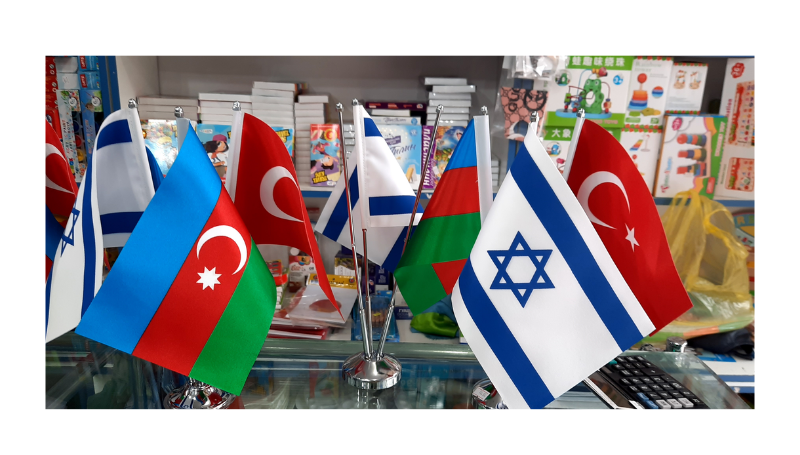Farhan Khan
India Today, May 1, 2025
“President Ilham Aliyev has called for an end to the “tragedy in Gaza,” but refrained from condemning Israel.”
The bilateral relationship between Azerbaijan and Israel has long flown under the radar, but the war in Gaza has cast new light on this unlikely alliance. At a time when much of the Muslim world has vocally condemned Israel’s military actions in the Gaza Strip, Azerbaijan—despite being a Muslim-majority country—has remained notably restrained in its criticism. The silence is not incidental. It is a calculated outcome of years of deepening diplomatic, military, and energy cooperation between the two states.
Foundations of an unlikely alliance
The seeds of the Azerbaijan–Israel partnership were planted over three decades ago, in a discreet meeting between Israeli Prime Minister Yitzhak Rabin and Azerbaijani President Heydar Aliyev in New York. With no shared borders, religion, or ethnic ties, the two countries still saw the potential for mutual benefit: Israel needed a stable source of energy, while Azerbaijan sought cutting-edge military technology.
Since then, the relationship has matured into one of Israel’s most strategic partnerships. Azerbaijan supplies about 40%–50% of Israel’s oil needs, mostly transported via the Baku-Tbilisi-Ceyhan (BTC) pipeline through Turkey to the Mediterranean. Even during the Second Intifada and other turbulent periods in West Asia, Azerbaijani oil shipments to Israel remained steady. This continuity underscores Baku’s long-standing commitment to separating its energy diplomacy from broader ideological pressures.
Conversely, Azerbaijan has become a major buyer of Israeli arms and surveillance equipment. From 2015 to 2019, 60% of Azerbaijan’s arms imports came from Israel. Israeli-made drones and other systems played a decisive role in Azerbaijan’s military victory in the 2020 Nagorno-Karabakh war against Armenia. In September 2023, the two countries signed another arms deal, strengthening their already substantial defence cooperation. Azerbaijan is also increasingly partnering with Israel in high-tech sectors such as aerospace and energy exploration, including new natural gas ventures in the Eastern Mediterranean. …SOURCE


